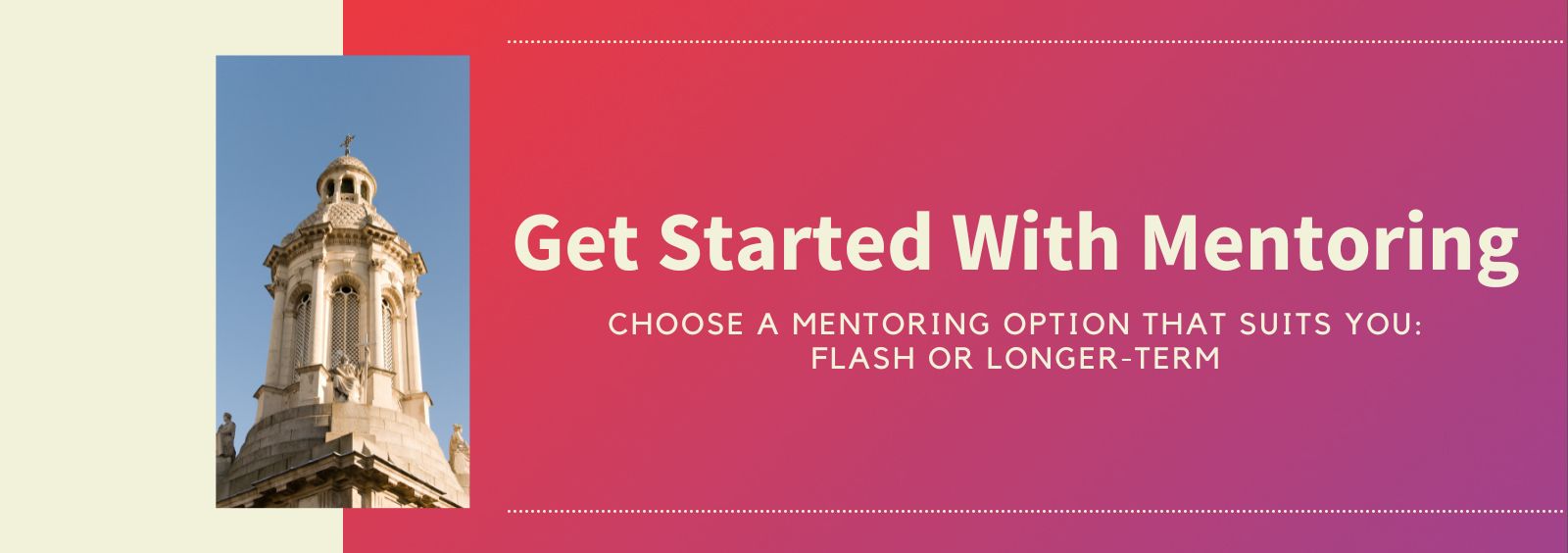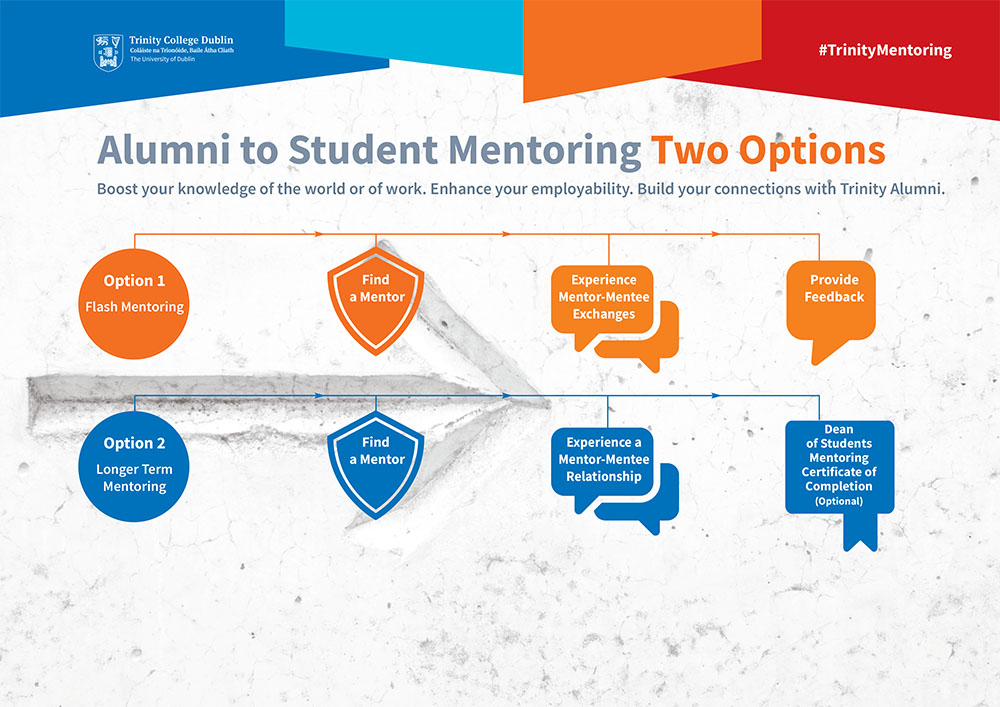Mentoring

What is mentoring?
Career mentoring is a relationship between a student (‘mentee’) and a more experienced person (‘mentor’), who is there to support you with developing your career.
The purpose of the relationship is the passing on of knowledge, experience and offering advice. Mentors can help with preparing for the world of work, discuss career options and offer practical assistance with getting jobs and a place on a postgraduate course.
Your Trinity alumni mentor could be working in an area that interests you or have graduated from the same course as you. It is up to you to select a mentor that interests you. As a student of Trinity, you have exclusive access to Trinity Alumni Online, where you can connect with mentors. You and your mentor will build a mentoring relationship, helping you achieve your mentoring objectives.
What types of topics can be covered?
- Exploring job roles and sectors
- Deciding what to do after College
- Practicing job interviews, professional communication and networking
- Finding jobs not advertised
- CV/LinkedIn profile reviews
- Developing your professional networks
- Clarifying and working towards your career goals
Who is mentoring for?
- Mentoring is for all undergraduate and postgraduate students interested in developing their career and network.
- Mentoring is for all students who agree to the Mentee Guidelines and the Principles of Mentoring - Mentees available at Trinity Alumni Online and the Careers Service website.
- It is for students interested in reflecting on their experiences. Trinity’s Guided Reflection Tool can help you to reflect in a structured way and could be the basis for a meeting with your mentor
What are my mentoring options?
Rollover to find out more:
or download the above graphic as a pdf.
2023/24 Programme
- Join in our Get Started with Mentoring Event, and find out how you could benefit from career mentoring
- Attend one of our online weekly Mentoring Clinics for support and advice from a Careers Consultant
- Login to Trinity Alumni Online, browse the mentors available to you and request a Flash or Longer-Term mentor
- Register to attend our Career Inspiration event on October 16th to meet Alumni from AHSS courses now working in a variety of different areas
- Keep an eye out for more Career Inspiration events in Semester 2
* For full details and to register for all events, please sign-in to MyCareer and go to the events tab
Being a mentee
Mentoring success stories
My longer-term mentoring goals included:
|
What I could offer a student interested in longer-term mentoring was:
|
Together: |
|
My longer-term mentoring goals included:
|
What I could offer a student interested in longer-term mentoring was:
|
Together: |
|
Mentoring resources
Once you register with Trinity Alumni Online use these Mentoring Guidelines to help you to approach a mentor. Once you have found a mentor the guidelines will help you to manage the process of flash and longer-term mentoring relationships.






